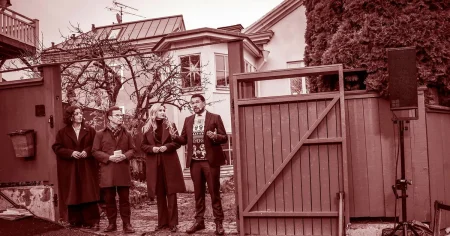The Swedish Social Democratic Party (S) is undergoing a period of strategic repositioning, marked by a deliberate attempt to blur the lines between their policies and those of the ruling coalition government comprising the Moderate Party, the Christian Democrats, and the Liberals, along with the Sweden Democrats (SD) who support the government. This tactical shift is most evident in areas like migration and crime, where S is actively downplaying its previous stances. Furthermore, the party is seemingly de-emphasizing its traditional focus on issues such as gender equality and human rights, opting instead for a more conservative approach. This strategic realignment can be interpreted as an attempt to recapture lost ground and appeal to voters who have gravitated towards the right-wing bloc.
This shift in focus is evident in the rhetoric employed by prominent figures within the party. For instance, MP Amalia Rud Stenlöf has suggested that the party’s previous emphasis on feminism has alienated young men. Similarly, Teresa Carvalho, the party’s justice policy spokesperson, has expressed a desire to minimize conflict with the Tidö parties (the governing coalition and SD), criticizing smaller parties, presumably the Centre Party and the Green Party, for their unwillingness to compromise on certain issues related to justice and equality. Lawen Redar, the cultural policy spokesperson, further exemplifies this shift by describing the party’s new program as ”very little woke,” a comment she later acknowledged resonated widely within the public discourse. These instances suggest a concerted effort to distance the party from what some perceive as progressive or ”woke” ideologies.
This strategic recalibration bears a striking resemblance to the period of self-reflection and repositioning undertaken by the Moderate Party following Fredrik Reinfeldt’s leadership. Just as the Moderates attempted to redefine themselves after their time in government, the Social Democrats appear to be engaging in a similar process of re-evaluation and adjustment. This involves distancing themselves from previously held positions and embracing a more populist rhetoric, seemingly prioritizing gaining media attention over maintaining ideological consistency. This strategy, however, carries inherent risks, particularly when dealing with a party like the Sweden Democrats, who have consistently shifted the goalposts further to the right. The Social Democrats’ attempt to appease right-wing voters by adopting a tougher stance on crime and immigration risks legitimizing increasingly extreme positions.
The current political climate in Sweden is characterized by a rightward shift on issues like law and order, with all major parties, including the Green Party, adjusting their policies accordingly. While no single party should have a monopoly on policy direction, the rapid and uniform movement towards a more punitive approach necessitates a critical voice willing to challenge the prevailing consensus. The smaller parties, like the Centre and Green parties, whom Carvalho criticizes, play a crucial role in providing this counterbalance. Their commitment to human rights and equality offers a necessary check on the potentially harmful consequences of an unchecked pursuit of stricter law enforcement measures.
The Social Democrats’ current preoccupation with tactical maneuvering and opinion polling raises questions about their substantive policy agenda. While they claim to prioritize addressing real problems, their focus on ”winning the news cycle” with soundbites about ”woke” ideology suggests a lack of clear direction. This raises concerns about whether the party is truly committed to addressing the complex challenges facing the country or simply focused on regaining political power through superficial appeals to public sentiment. The party’s seemingly reactive approach risks further alienating its traditional voter base without effectively engaging with the concerns of those they aim to attract.
The current political landscape in Sweden demands a strong and principled opposition. While adapting to changing public opinion is a necessary part of the democratic process, the Social Democrats’ apparent willingness to abandon core values in pursuit of short-term political gains raises serious questions about the party’s long-term vision. Their strategy of mirroring right-wing rhetoric on key issues not only risks normalizing extremist viewpoints but also leaves a void in the political discourse for a party committed to progressive values. The challenge for the Social Democrats is to find a way to address legitimate public concerns about crime and immigration without sacrificing their commitment to social justice and equality.














